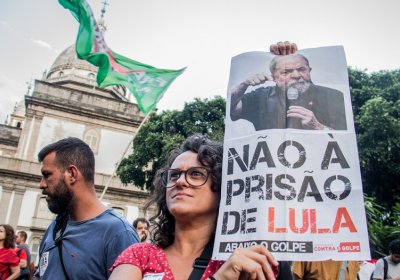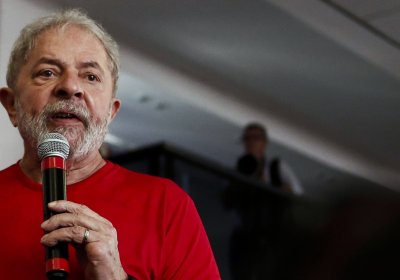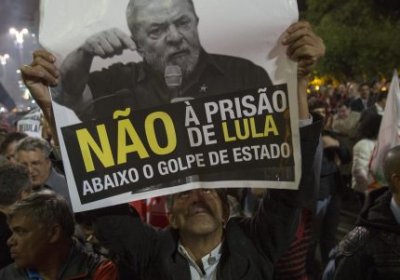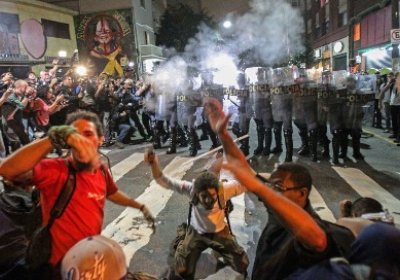The most recent survey conducted by Vox Populi for Brazil’s Unified Workers’ Union (CUT) found 59% of the Brazilian population consider former Brazilian President Luiz Inacio ‘Lula’ da Silva to be a political prisoner. Lula, as he is popularly known, complied with an arrest warrant against him earlier this month few days following a Supreme Court ruling against his appeal earlier this month.
Brazil
The jailing of ex-Workers’ party (PT) president Luiz Inácio Lula da Silva can only be seen as a continuation of the “institutional coup” begun in 2016 that ousted elected PT President Dilma Rousseff, writes Juan Cruz Ferre.
Luiz Inácio Lula da Silva, popularly known as “Lula”, decided to turn himself in after the Brazilian Supreme Court found him guilty of corruption and handed down a 12-year jail sentence on April 5. After 10 hours of debate, the Court turned down Lula’s plea to remain free by one vote— four against five.
The body of Carlos Alexandre Pereira Maria was found on April 8 in a bullet-riddled car in Curumau, east of Rio de Janeiro, local media reported.
Pereira, 37, had been cited to testify in court as part of the investigation of the March 14 assassination of councilwoman and socialist activist Marielle Franco and her driver Anderson Gomes. Franco was a strong opponent of the military take-over of Mare, a poor neighbourhood in Rio home to about 140,000 people.
The Brazilian Supreme Court decision jailing former president Luiz Inácio Lula da Silva for 12 years — ruling out the politician leading opinion polls ahead of October elections — has caused an uproar in Brazil, writes Zoe PC.
João Pedro Stedile, leader of the Landless Rural Workers’ Movement (MST), sees the latest developments as a continuation of the coup of 2016 that forced out democratically elected president Dilma Rouseff, from Lula’s Workers’ Party (PT).
In Brazil and around the world, many were shocked by the egregious act of cold-blooded murder that took place on March 14 — and that put on display the open wounds of the country’s 2017 institutional coup, writes Tatiana Cozzarelli.
Across the world, people have responded with outrage, sadness and grief to the assassination of Brazilian pro-poor activist Marielle Franco and her driver Anderson Pedro Gomes in Rio de Janeiro on March 14.
Brazil is one of the world’s most dangerous countries for leftist activists.
Prominent Brazilian human rights activist and counciller for the left-wing Party of Socialist and Liberation (PSOL) Marielle Franco was assassinated in Rio de Janeiro on March 14. The openly gay councilor was outspoken in defence of the poor and against racism.
Brazilian professor and researcher Sabrina Fernandes discusses former president Luiz Inacio “Lula” da Silva’s January 24 corruption trial and the country’s forthcoming October presidential election.
Former Brazilian president Luiz Inacio “Lula” da Silva has lost his appeal against 2017 corruption conviction last year in a major blow to his chances of regaining office.
The judgment was reached on January 24 after two of the three appeal court judges in the case voted to uphold the decision of a lower court. While Lula can still take his appeal to a higher court, the court's decision could rule him out of October's presidential election.
Former Brazilian President Luiz Inacio "Lula" da Silva was sentenced on July 12 to nine years and six months jail over corruption charges in the Operation Car Wash investigations. The ruling came a day after the Brazilian Senate's approval of President Michel Temer's unamended labour reform bill, which has been heavily criticised by trade unions and social movements.
Police brutally repressed thousands of Brazilians who took the streets on June 30 to oppose austerity measures and the Michel Temer government. The actions were part of the second general strike in three months.
The “general strike” included work stoppages by teachers and workers in the banking, metals, health care and oil refinery sector, among others.
- Previous page
- Page 7
- Next page











